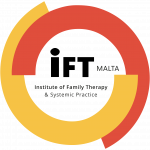Available courses
Professional Doctorate in Systemic Practice
Category: Miscellaneous
Post Graduate Certificate in Parental Alienation Studies 2025
Category: Miscellaneous
- Teacher: Brendan Guildea
- Teacher: Ashish Joshi
- Teacher: Brian O'Sullivan
M3 Masters in Parental Alienation Studies 2025 - 2026
Category: Miscellaneous
- Teacher: Brendan Guildea
- Teacher: Tapio Koivula
- Teacher: Ken Lewis
- Teacher: Joshua Marsden
- Teacher: Brian O'Sullivan
PGC1 - Post Graduate Certificate in Parental Alienation Studies 2024 – 2025
Category: Miscellaneous
- Teacher: Brendan Guildea
- Teacher: Ashish Joshi
- Teacher: Brian O'Sullivan
